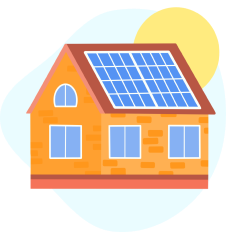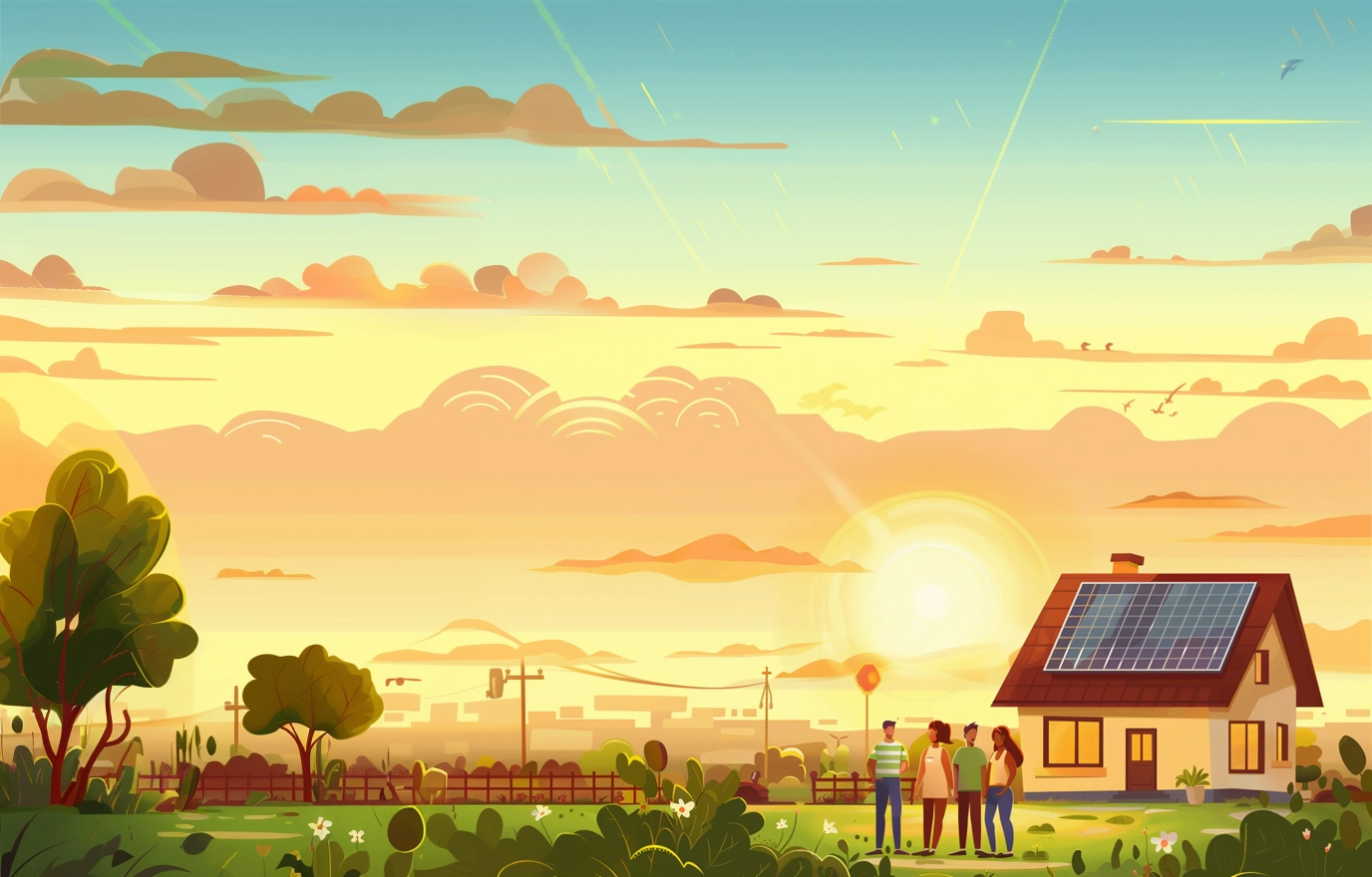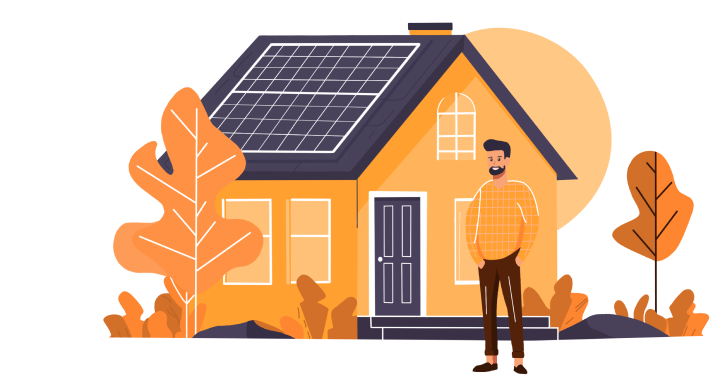Solar panel system installation can bring your household more savings, add value to your home, and give you more energy independence. However, it is a huge project to oversee and it's a significant financial investment, so you're going to want to make sure it's done successfully and that you're prepared for what the process entails.
Here are some tips you need to know if you're planning to install solar panels in your home.
Tip #1: Know your energy needs.
Take a look at your past utility bills to get a good idea of your average monthly and annual energy usage. It will also help you anticipate any peak seasons of your energy consumption. For example, your household may consume more energy in the summer and winter because of increased air conditioning and heating use, respectively.
Your current usage isn't the only factor to take note of, though. You need to anticipate how future changes, like upgrading appliances and electronics, can affect your energy consumption too.
Understanding your energy usage and peak demands is crucial for sizing your solar system accurately. A system that's too small won't meet your needs, while one that's too large incurs unnecessary solar panel system installation costs. Properly sizing your system ensures efficiency and cost-effectiveness.
Tip #2: Find a reputable installer.
When it comes to solar panel system installation, finding the right service provider is the most important step of the process. After all, you need to be assured that your partner in this huge home investment is one that you can trust.
We know that it can be overwhelming to search for and look through all your options for solar panel installers, though. But don't let that stop you. We're here to help make this step much easier for you.
With Solar Energy Host, all you have to do is provide some basic information about your property and energy consumption. We'll then use your details to generate a list of competitive rates from providers near you for you to easily compare side by side for seamless decision-making.
Plus, we've vetted all the solar installation companies in our network. So, each quote is from a trusted home solar panel installation company.
We don't just make sure that you know all your local solar panel installation options; we also see to it that you don't miss out on the best deals while exploring them.
Tip #3: Optimize panel placement.
Want to make the most out of your solar panel system installation? See to it that you're optimizing your panel placement decisions.
The equator receives the most direct and intense sunlight, so orienting a system toward that direction will maximize energy production. That means, for countries in the Northern Hemisphere, like the USA, south-facing panels will receive the most sunlight.
On top of orientation, you also need to keep shading in mind since it can reduce panel efficiency. Make sure to have your solar setup placed somewhere with minimal shading from trees, posts, and nearby buildings.
Tip #4: Research needed permits.
Before even beginning the solar panel system installation process, you need to be aware of what permits you need to make sure you don't miss out on any and run into any legal complications.
Research your local building codes and zoning laws to ensure your solar panel system is up to code. In addition to federal, state, and city regulations, you also need to check with your local homeowner's association (HOA), if applicable. Some HOAs have community-specific standards that you may have to take note of.
Tip #5: Plan for maintenance.
A successful solar panel system installation isn't just about the process of greenlighting and carrying out the actual mounting and activation of the panels. It's also about monitoring the panel system setup's performance and seeing to it that it's being maintained properly.
Don't wait until it's been a year after solar panel system installation completion when you suddenly remember you should have it cleaned or inspected. You should already have a scheduled plan for upkeep and go-to professionals to contact for both routine and emergency concerns by the time the installation is finished.
Check if your provider for solar panel installation services also offers maintenance or can refer you to contractors you can contact when the need for cleaning, inspection, or repairs arises. This way, you have all the information you need to act promptly should any issues arise.
Frequently Asked Questions (FAQ)
How much space do I need for a solar panel system?
Whether you opt for a rooftop solar panel system or a ground-mounted solar panel system, the size of the setup ultimately depends on your energy requirements. So, if you have a bigger household or you have tons of appliances running most of the day, chances are that you need a bigger system.
While the ratio of space to energy generation depends on many factors like panel efficiency, the solar potential of the area, and more, a general rule of thumb is that each square foot of a system can potentially produce about 15 watts of power.
Examine your past utility bills and patterns of energy consumption behavior to get an accurate estimate of how much space you need for your system.
What is the difference between on-grid and off-grid solar panel systems?
Grid-tied solar systems are still connected to the utility power grid. They're able to depend on the utility for backup power during cloudy days when solar energy is limited or at night when there's no energy being generated at all.
Meanwhile, off-grid solar panel systems are completely independent of the utility grid. They rely solely on solar panels and battery storage to generate all the power needed. This provides complete energy independence, so homeowners don't need to worry about outages and fluctuating electricity costs.
How do I choose the right solar panel system for my home?
Both grid-tied and off-grid options come with their advantages, and the choice is ultimately up to your circumstances and preferences.
Grid-tied solar installation setups are best suited for those who want the option of always having backup power without the effort of monitoring and storing the excess energy themselves. They're also great for those who are interested in saving money through net metering, which is when excess energy produced by the panels can be put back into the grid.
Off-grid systems are best suited for those who are in remote places or want complete energy independence. Through proper storage and monitoring of excess energy, people with off-grid systems can still generate power even on cloudy days and during the night without relying on the grid. This allows for the complete elimination of regular electricity bills and lower carbon emissions.
A seamless switch to solar
Find the best solar installers in your location and easily compare competitive rates with the help of Solar Energy Host. We're here to make the transition to clean energy and more savings a smooth one for you and your households.
Avoid missing out on great deals; see how much it will cost to install solar panels for your home today!




















